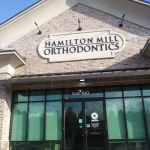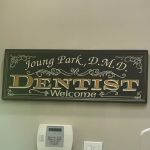Why Dental Cleanings Are Important
Visiting the dentist for a routine cleaning is a critical part of maintaining good oral health. Dental cleanings are essential for removing plaque and tartar that can build up on your teeth and lead to cavities, gum disease, and other oral health issues. For many people, the first dental cleaning can be a bit intimidating, especially if it’s been a while since their last visit or if they’re unfamiliar with the process.
During your first cleaning, you can expect a thorough evaluation of your teeth and gums, followed by a cleaning that helps keep your smile healthy. Dental professionals often recommend cleanings every six months to ensure that your teeth stay free from plaque and that potential issues are caught early. So, what can you expect during your first dental cleaning? Let’s break it down.
Preparing for Your First Dental Cleaning
Preparation for a dental cleaning is relatively simple, but it’s important to be mentally and physically ready for the appointment. Here’s how to prepare for your first visit:
- Arrive Early: It’s always a good idea to arrive early to fill out any necessary paperwork or health history forms, especially if it’s your first visit to a particular dentist.
- Bring Medical Information: If you have any allergies or medical conditions that could affect your oral health, make sure to bring this information to your appointment. This could include conditions like diabetes, heart disease, or pregnancy.
- Ask Questions: If you have concerns about your teeth or gums, be sure to ask your dentist about them before your cleaning. This is a great time to raise any issues you might have noticed with your teeth or gums, such as bleeding or sensitivity.
Being well-prepared for your dental appointment can help ease any anxiety and ensure that you get the most out of your visit.
What Happens During the Cleaning
When you sit down in the dentist's chair, the cleaning will typically begin with a visual inspection of your teeth and gums. Your dentist or dental hygienist will check for signs of decay, gum disease, and other oral health concerns. Here’s what you can expect during the actual cleaning process:
- Scaling: The dental hygienist will use specialized instruments to remove plaque and tartar from the surface of your teeth, especially around the gum line. This step can take longer if you have a lot of build-up on your teeth, but it’s necessary to remove hardened plaque that can’t be removed with regular brushing.
- Polishing: After scaling, your teeth will be polished with a gritty paste that helps smooth the surface of your teeth. This step also removes any remaining plaque and gives your teeth a shiny appearance.
- Flossing: Next, the hygienist will floss between your teeth to remove any remaining debris and ensure that your gums are healthy. This step is crucial for identifying areas where plaque or tartar may have accumulated between your teeth.
- Rinsing: A special rinse will help clear away debris from your cleaning and leave your mouth feeling fresh.
The entire process usually takes between 30 and 60 minutes, depending on the condition of your teeth and the extent of the cleaning required. It’s a straightforward procedure that’s completely safe and effective for maintaining optimal oral hygiene.
Is a Dental Cleaning Painful?
Many people are concerned about the potential discomfort during a dental cleaning, especially if they haven’t been to the dentist in a while. In general, dental cleanings are not painful, but some people may experience mild discomfort, especially during the scaling portion of the procedure. This is especially true if you have sensitive teeth or gums.
If you experience discomfort, don’t hesitate to let your hygienist or dentist know. They can adjust the pressure or use numbing agents if necessary to help make you more comfortable. For patients with severe anxiety or sensitive teeth, sedation options are sometimes available to help you relax during the procedure.
Overall, most patients find that dental cleanings are not painful and leave them with a clean, refreshed feeling afterward.
After-Care Tips Following Your First Cleaning
After your first dental cleaning, your teeth may feel smoother and cleaner than ever. However, there are a few things you should keep in mind to ensure that your teeth remain healthy and your gums stay in great shape:
- Avoid Eating or Drinking Immediately: It’s a good idea to wait at least 30 minutes after your cleaning before eating or drinking. This allows your mouth to recover and prevents irritation to your gums.
- Maintain Good Oral Hygiene: Continue brushing and flossing your teeth at least twice a day. This will help prevent plaque and tartar from building up between cleanings.
- Stay Hydrated: Drinking water throughout the day helps to wash away food particles and bacteria, which can contribute to plaque buildup.
- Watch for Sensitivity: It’s common to experience some sensitivity after a cleaning, especially if you have gingivitis or other gum issues. If your teeth remain sensitive for more than a few days, let your dentist know.
These after-care steps will help keep your mouth feeling fresh and prevent the return of plaque and tartar buildup.
When to Schedule Your Next Cleaning
After your first dental cleaning, your dentist will likely recommend a follow-up cleaning schedule. In most cases, dentists recommend getting a professional cleaning every six months to ensure your teeth stay in good condition. However, some people with specific dental needs, such as those with gum disease or a higher risk for cavities, may need more frequent cleanings.
Scheduling regular cleanings is crucial for preventing oral health problems and maintaining a bright, healthy smile. Your dentist or hygienist will help determine the best cleaning schedule based on your individual needs.
Conclusion: Maintaining Healthy Teeth
In conclusion, a dental cleaning is an essential part of maintaining good oral health. During your first cleaning, you can expect a thorough, non-invasive procedure that will leave your teeth feeling clean and your gums healthier. It’s important to keep up with regular dental visits to prevent plaque buildup and identify potential issues early on. If you haven’t had your first cleaning yet, or if it’s been a while since your last visit, don’t delay—schedule an appointment today and take the first step toward maintaining a healthy, beautiful smile.







 Cuozzo Orthodontic Specialists4.0 (18 review)
Cuozzo Orthodontic Specialists4.0 (18 review) Hamilton Mill Orthodontics4.0 (27 review)
Hamilton Mill Orthodontics4.0 (27 review) UI Health Mile Square Health Center - Primary and Immediate Care3.0 (13 review)
UI Health Mile Square Health Center - Primary and Immediate Care3.0 (13 review) Park Family and Cosmetic Dentistry5.0 (51 review)
Park Family and Cosmetic Dentistry5.0 (51 review) Robert Niles5.0 (2 review)
Robert Niles5.0 (2 review) Integrated Dental4.0 (189 review)
Integrated Dental4.0 (189 review) The Importance of Oral Health Education During Pregnancy for a Healthy Pregnancy
The Importance of Oral Health Education During Pregnancy for a Healthy Pregnancy Best Tips for Brushing Your Teeth Properly for Healthy Gums: Essential Techniques for Oral Health
Best Tips for Brushing Your Teeth Properly for Healthy Gums: Essential Techniques for Oral Health Why Skipping Dental Checkups Can Lead to Bigger Oral Health Problems
Why Skipping Dental Checkups Can Lead to Bigger Oral Health Problems Advantages of Porcelain Dental Restorations
Advantages of Porcelain Dental Restorations How Can Diabetes Cause Tooth and Gum Problems? Preventing and Managing Oral Health Issues
How Can Diabetes Cause Tooth and Gum Problems? Preventing and Managing Oral Health Issues Healthy Habits for Promoting Good Oral Health and Hygiene: Tips for a Healthy Smile
Healthy Habits for Promoting Good Oral Health and Hygiene: Tips for a Healthy Smile